2025
Single-channel video installation (color, sound)
14 minutes
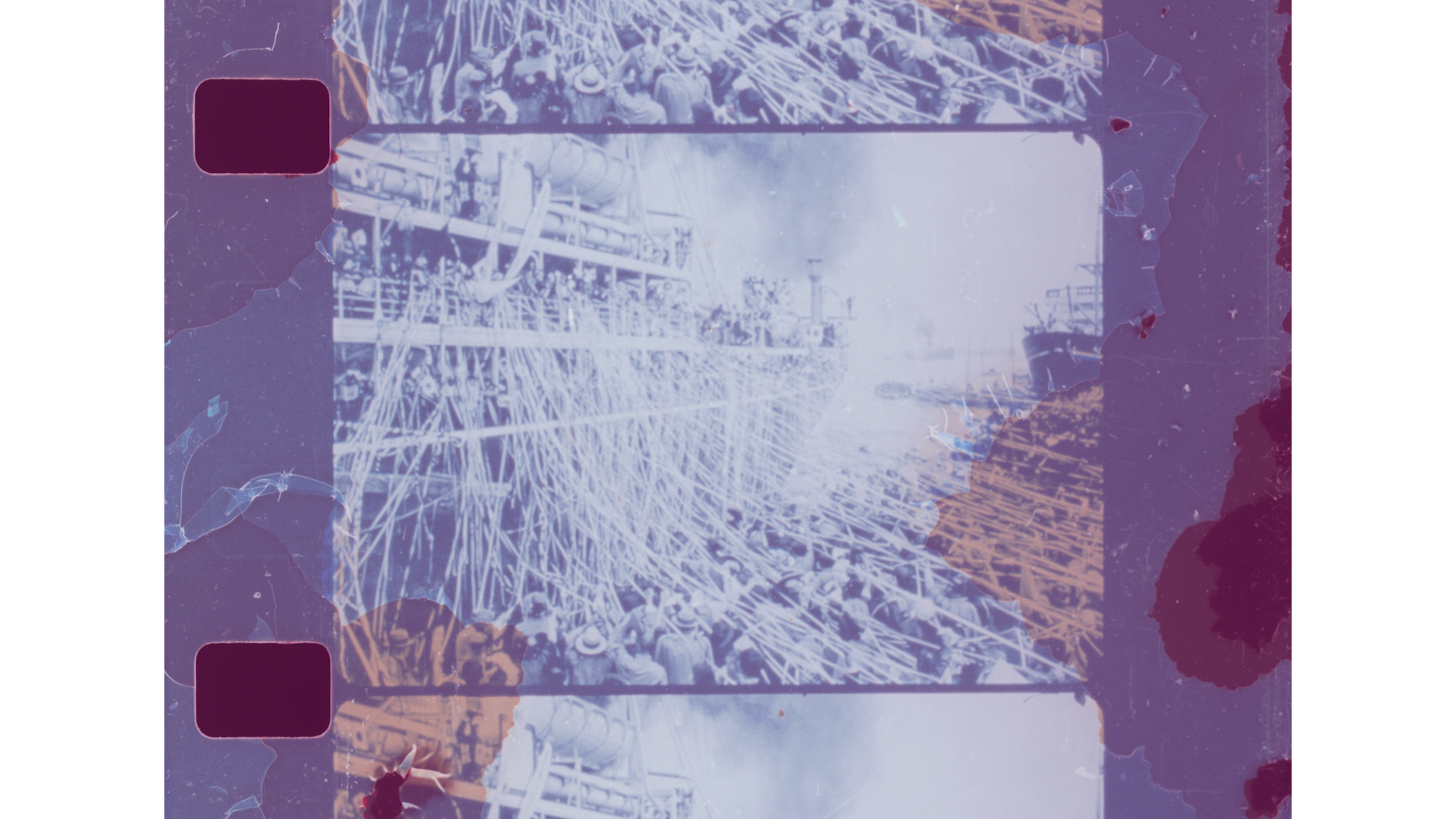
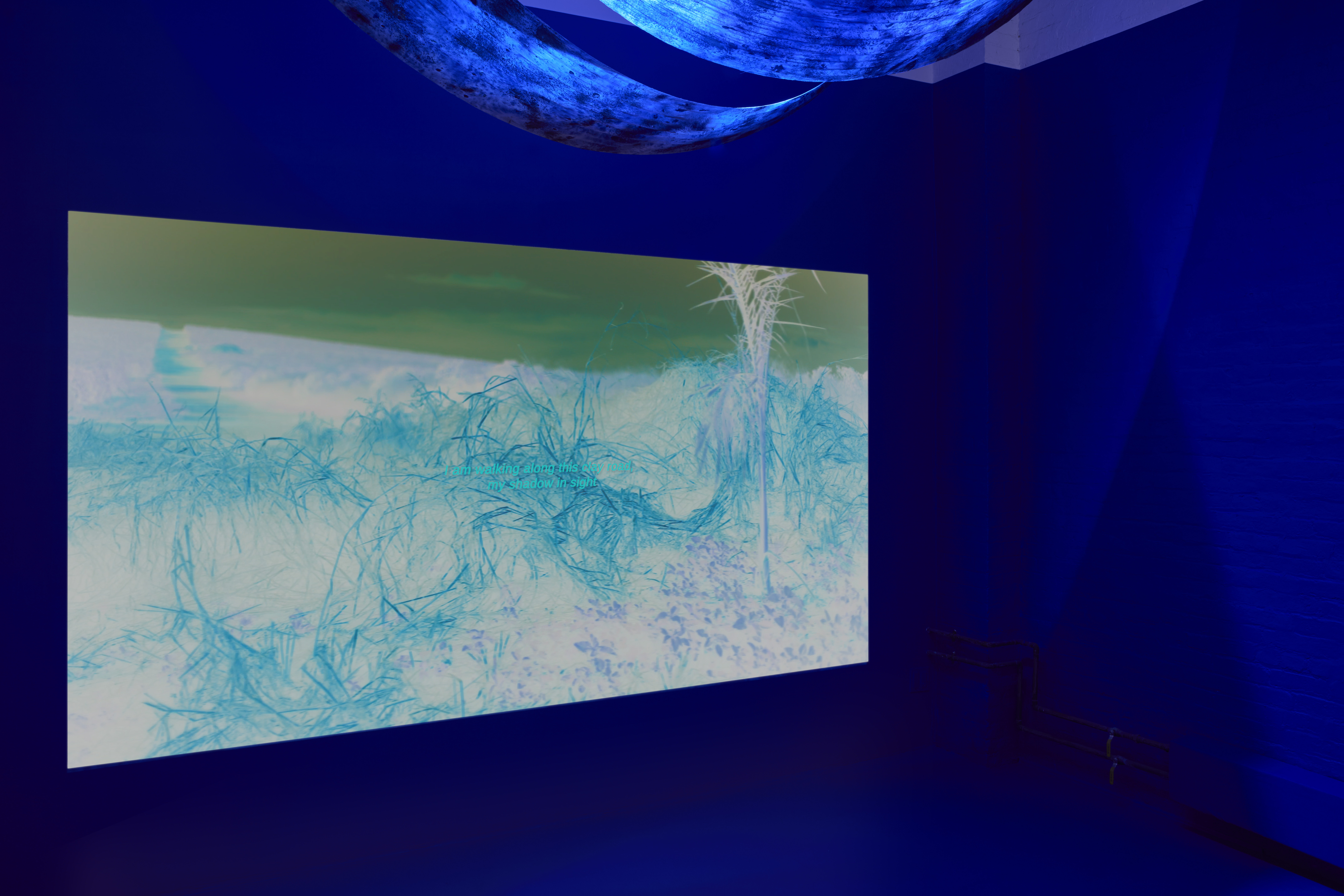
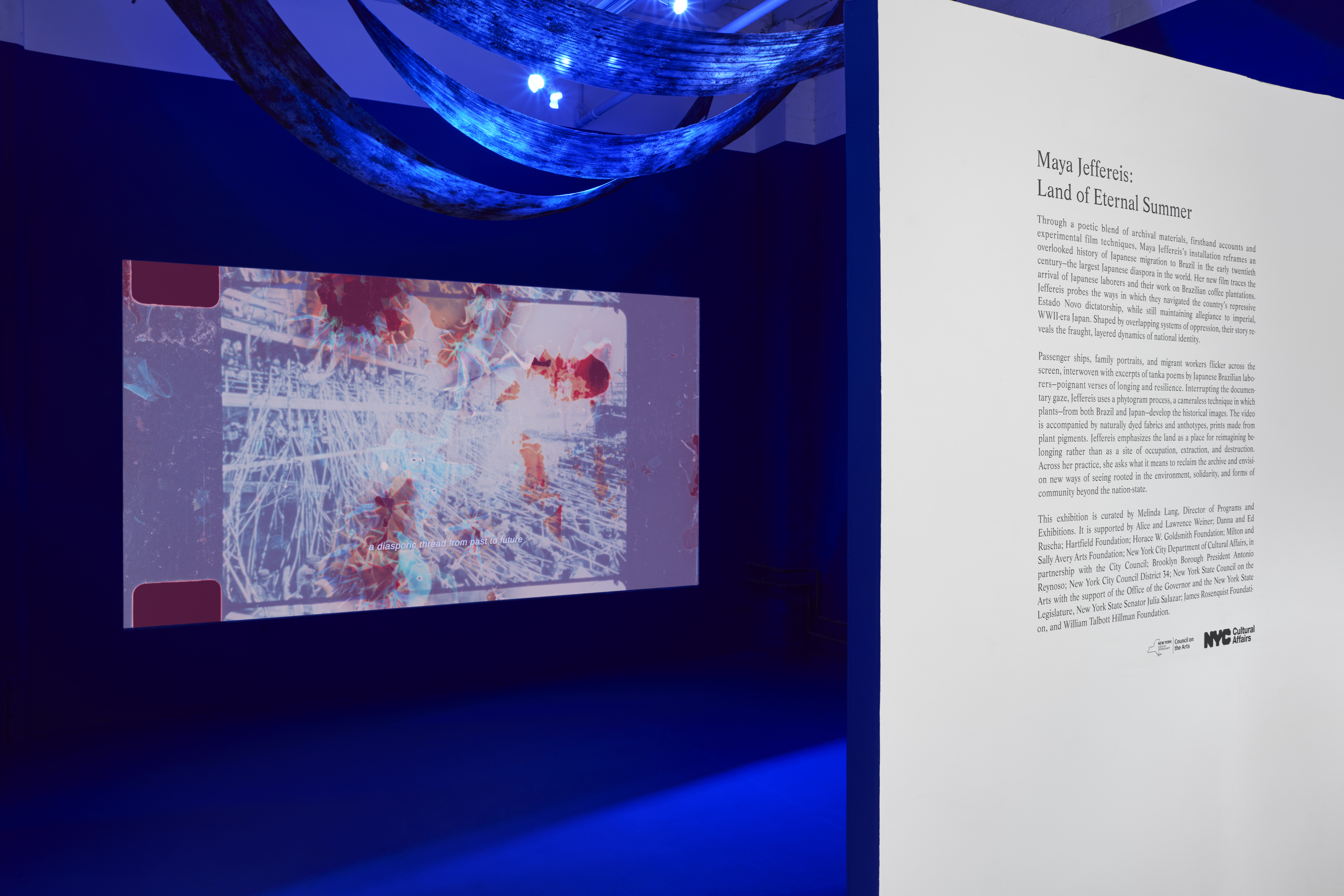
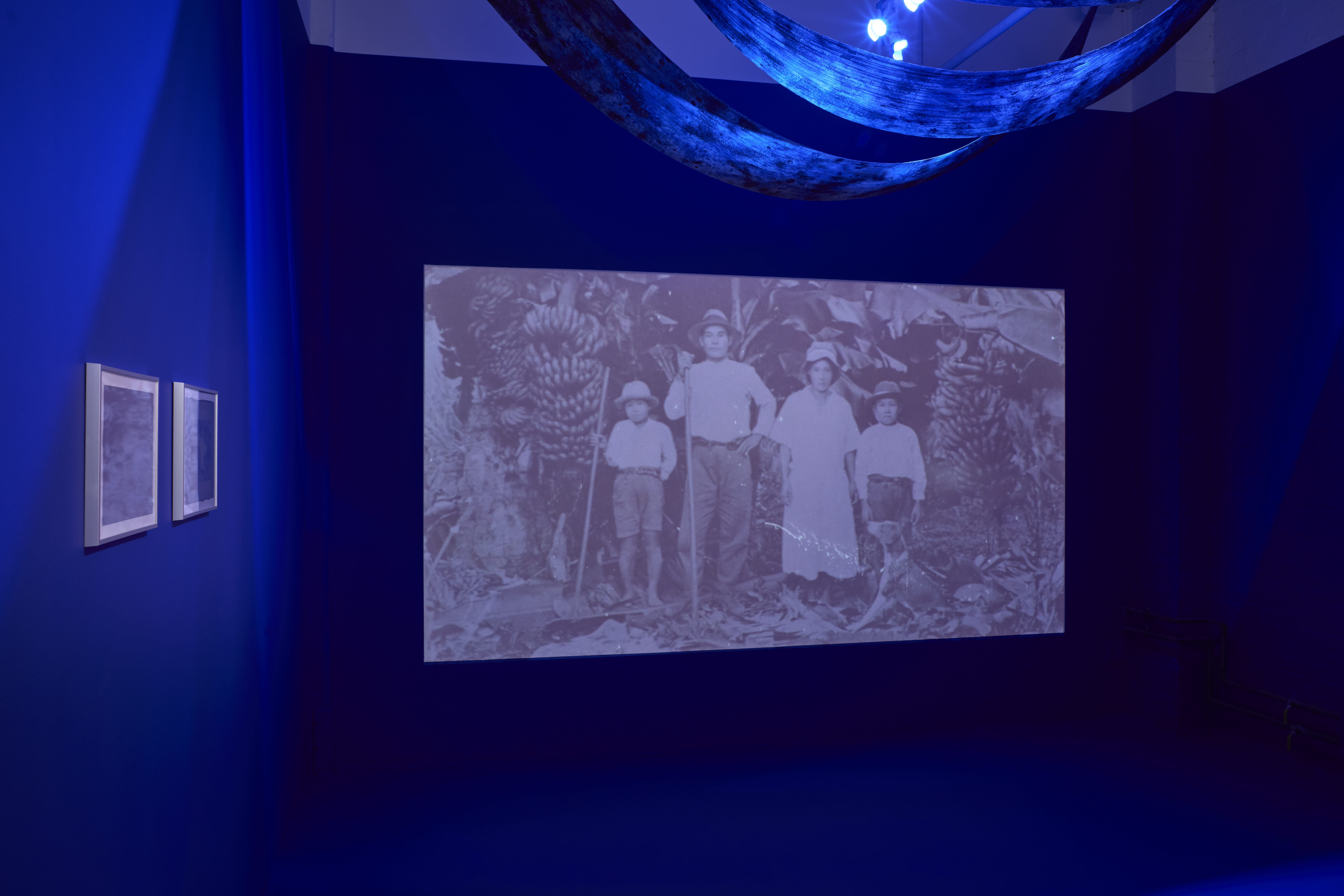
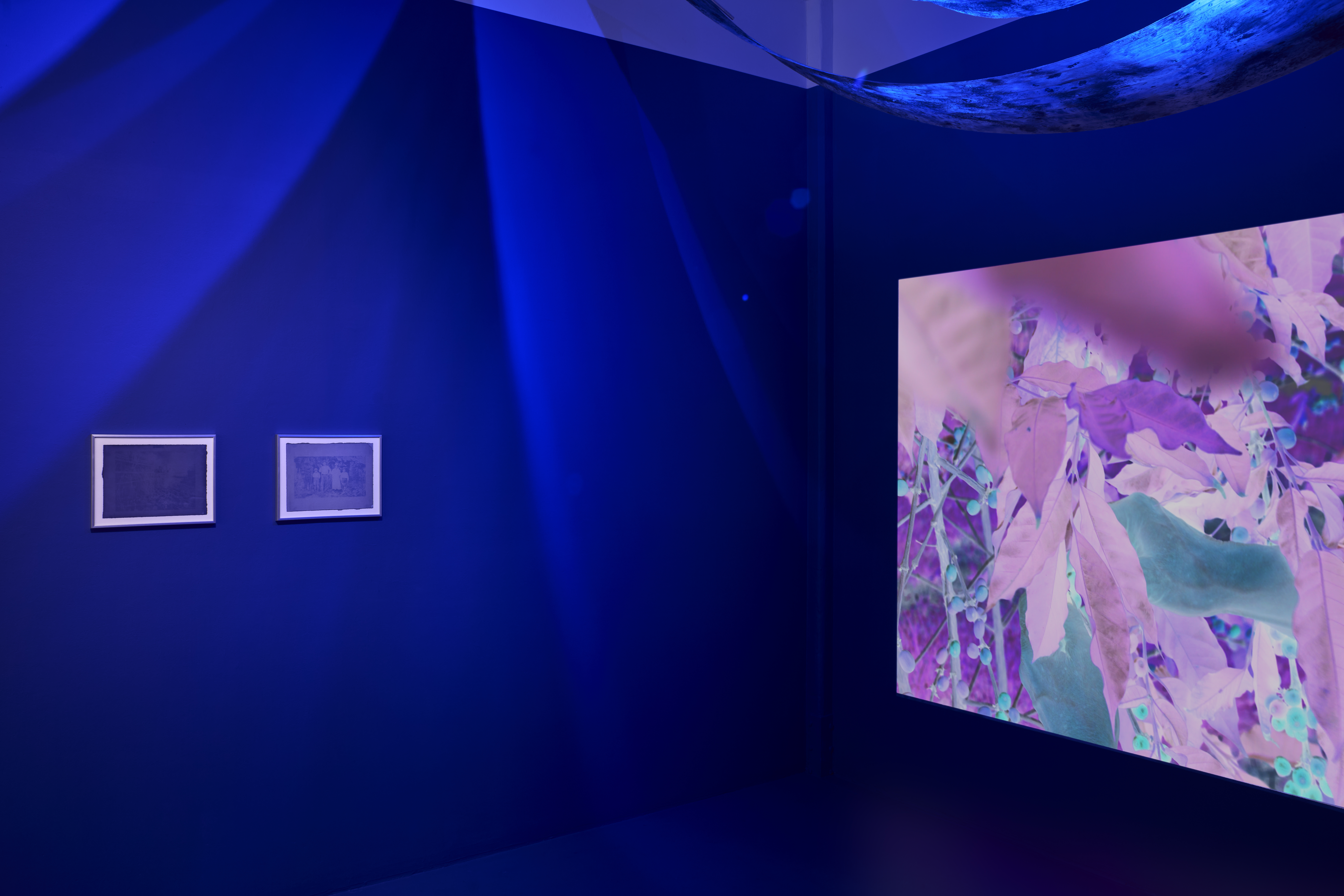
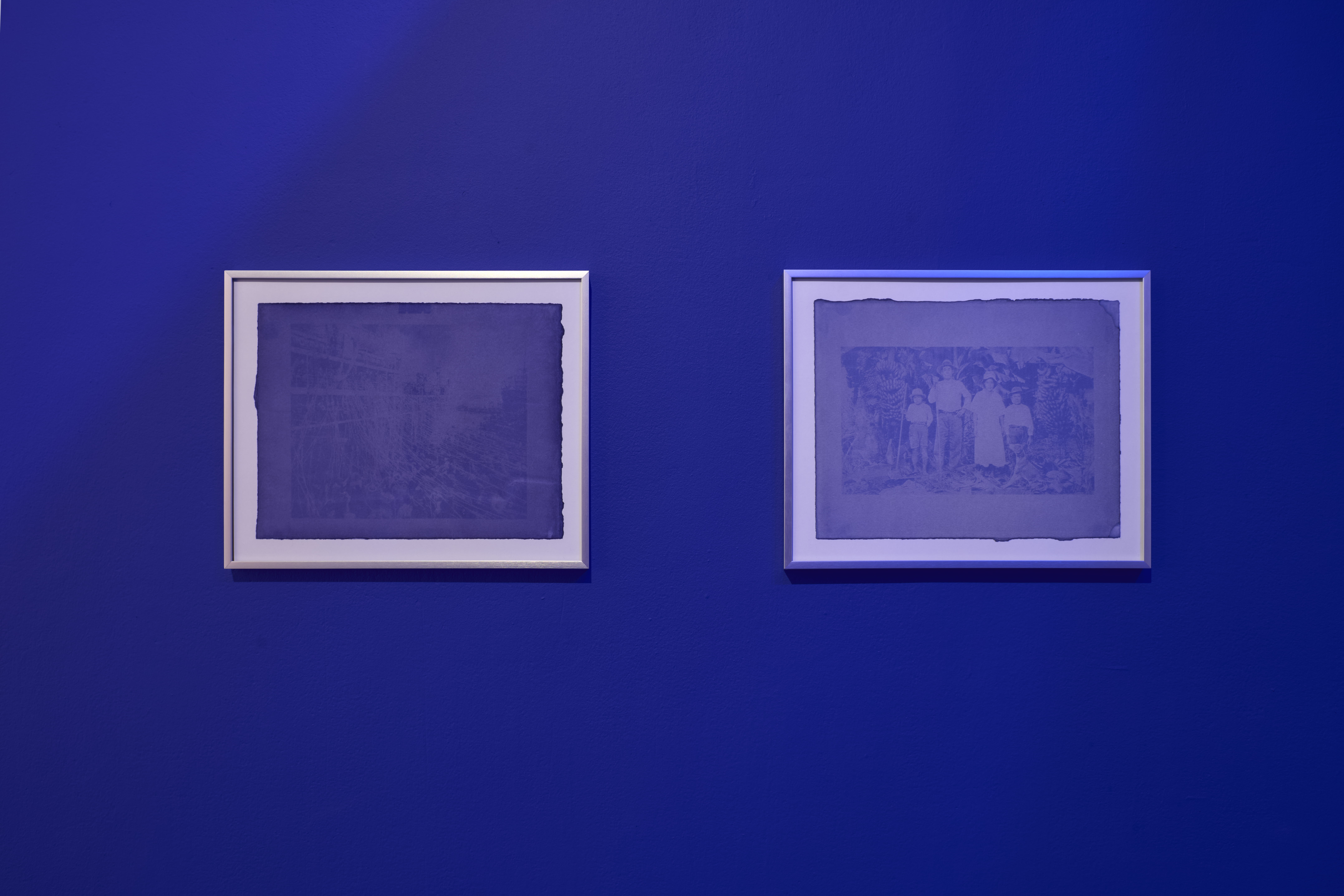
Land of Eternal Summer focuses on the wave of Japanese laborers that immigrated to Brazil to work on coffee plantations, a movement that began in 1908, in the wake of slavery’s abolition and shifting global immigration policies. Resisting conventional methods of presenting historical footage on this subject, Jeffereis transfers archival Japanese Brazilian images to 16mm film using a phytogram process—a cameraless technique in which plants develop the photograph or moving image. Plants from both Brazil and Japan, including açaí, coffee, hibiscus and chamomile flowers, kariyasu (Japanese silver grass) and kihada (Amur cork tree bark), give visual form to the hazy images on screen, interrupting the documentary gaze.
Throughout the video, fragmented images of passenger ships, families, and migrants in fields flicker alongside translated excerpts of tanka poems written by Japanese laborers in Brazil and voiced by their descendants. Beneath these expressions of longing and resilience is an inquiry into the complex dynamics of national identity during Brazil’s Estado Novo dictatorship in the 1930s and ’40s, when Japanese Brazilians endured oppression and cultural erasure while still maintaining ties to imperial Japan. Jeffereis emphasizes the land—not only as a site of occupation, extraction, and destruction, but also as a place for reimagining belonging. Across her practice, Jeffereis asks what it means to reclaim the archive and envision new ways of seeing rooted in the environment, solidarity, and forms of community beyond the nation-state.